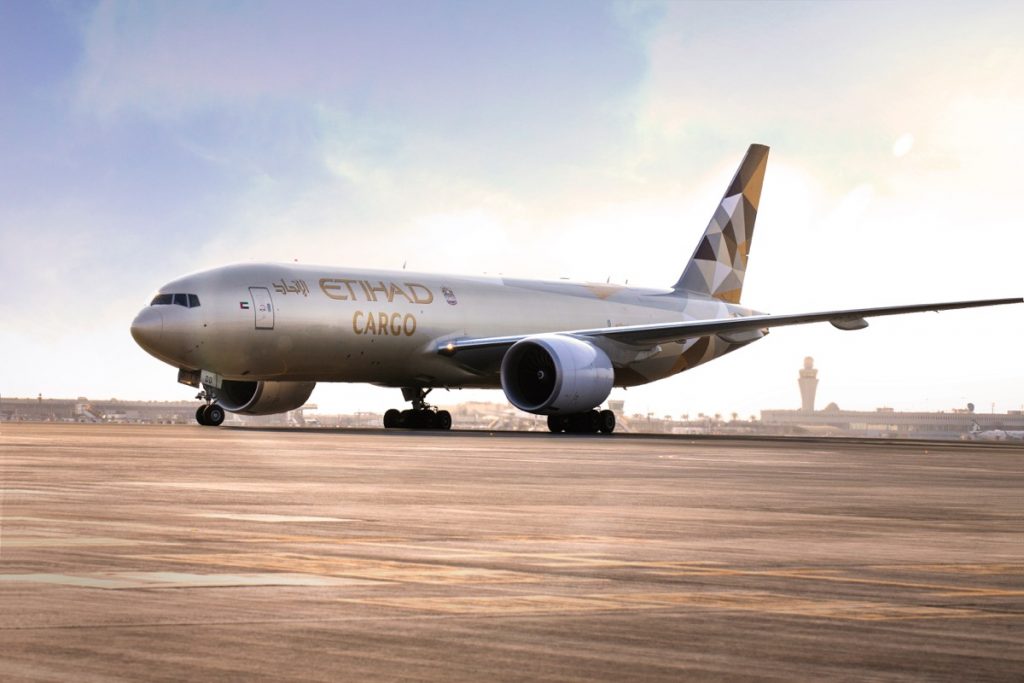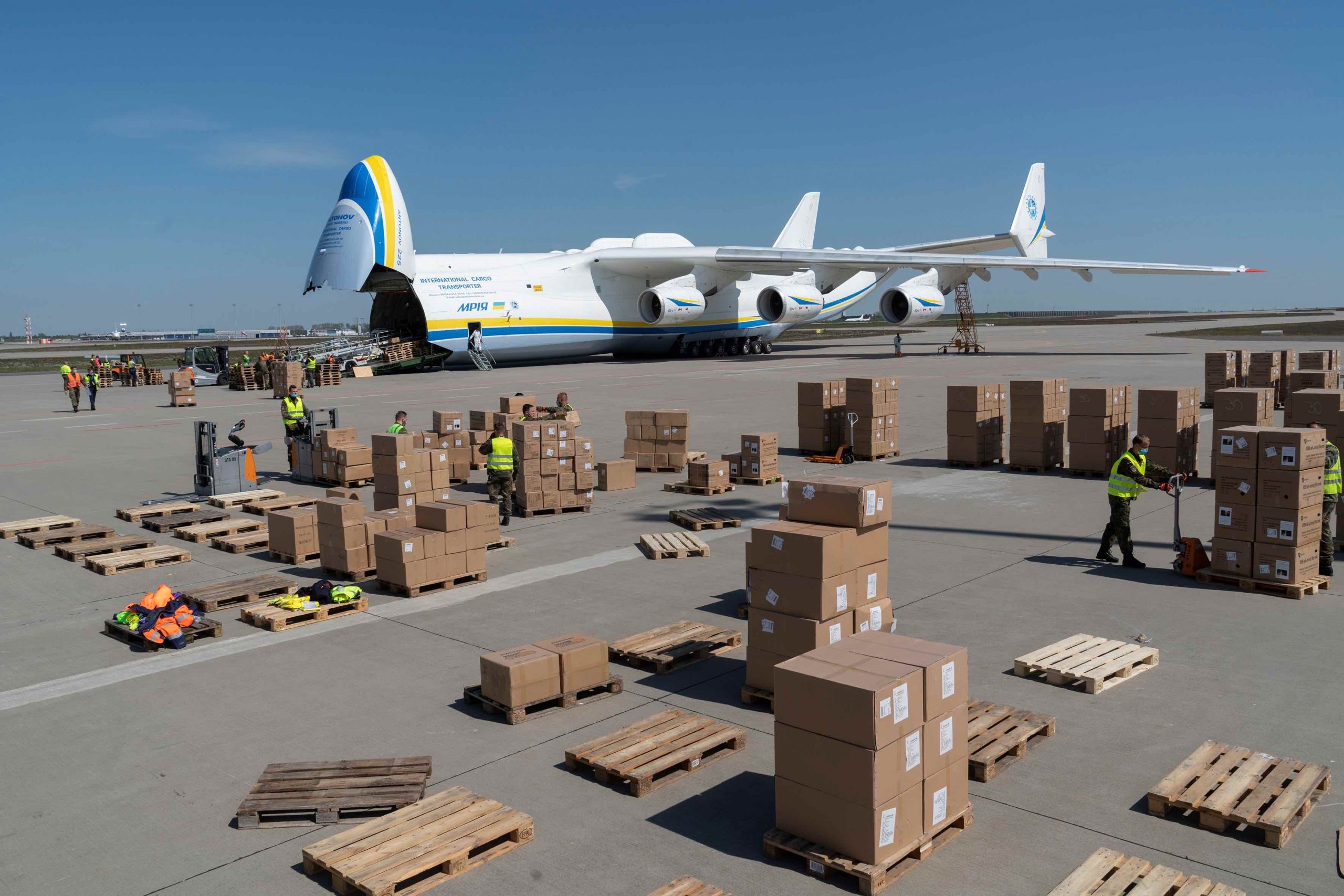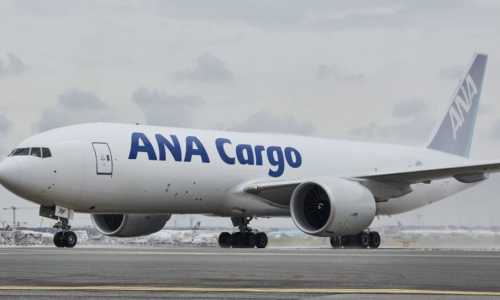
Middle East carrier happy with its B777F fleet numbers
Etihad Cargo was criticised when it parked its five Airbus A330 freighters in January 2018, focusing instead on core trade lanes for its five Boeing 777Fs.
That strategic shift by the Middle East carrier now seems prescient, as many freighter operators are currently re-evaluating their main deck networks as airfreight’s boom volumes of two years ago are a distant memory, with the US and China squaring up for a trade war.
Abdulla Mohamed Shadid, Etihad Airways managing director cargo and logistics, says: “When Etihad rationalised the freighter fleet to fit our new strategy it was criticised by a few, with people questioning the reduction in our fleet when everybody else was growing theirs.

“We did it to make Etihad Cargo more competitive based on a long-term plan, and we have seen the industry weaken in the first four months of 2019. It has proved that the formula implemented last year was a successful one.
“A fleet of five freighters works for us and allowed us to better weather this tough period.”
Etihad is maintaining the same load factors as prior to downsizing the freighter fleet – the A330s were later sold to DHL – and has regained customer trust, says Shadid.
“Volumes may be down across the industry, but we have managed to maintain them with our key customers, and in some cases have increased them. And a big part of that goes to how we define our strategy and our core network, it becomes more stable.”
The five B777Fs operate a core network from the UAE carrier’s Abu Dhabi hub. Says Shadid: “Etihad Cargo does not need to be all over the world, but we need to be where we can actually provide value and be competitive, and we have done that.
“Our freighter fleet increased its performance last year to achieve record aircraft utilisation, record profitability and record load factors.”
Interviewed at Air Cargo Europe in Munich, Shadid was asked about the current airfreight market and his expectations for the remainder of 2019.
“Asia has not been as strong as it was last year, and we all know the reasons behind that: the protectionist measures being taken globally which are impacting the free flow of trade as we know it.
“We have not seen a dip in volumes in certain markets, but the yields are certainly not where they were last year, so there comes a point where, if we see any softening volumes, we do have the capability to flex our freighter network and perhaps also switch capacity between scheduled and charters.
“Also, some 70% of our capacity comes from bellyhold so that is one of the things we’ve been able to focus more upon, maximising the freighter to belly flows, and we have not seen a lot of the pain points that a freighter-only operator might feel in today’s market conditions.”
Lufthansa Cargo has cut back on its ageing MD-11 freighter capacity and Emirates has cut its freighter fleet from 15 to 12 aircraft over the past two years and will “re-evaluate” its freighter portfolio if the market deteriorates further. Does Etihad have any plans to mothball one of its B777Fs?
“Our freighter fleet increased its performance last year to achieve record aircraft utilisation, record profitability and record load factors.”
Abdulla Mohamed Shadid
Says Shadid: “We do not see that happening, but we need to keep monitoring the market and right now it is a tough time for the industry. But I think that all of the transformation measures we are putting in place, are gaining the trust of customers who are able to shift and channel more work to us, which means we are confident that by the end of the year we will see the market pick up again.”
The current emphasis now for Etihad Cargo is on three remaining pillars: digital infrastructure, physical infrastructure and the commercial proposition.
“We should not and cannot aspire to be the largest air cargo carrier in the world, that is the wrong aspiration. Where we can differentiate is in digital capabilities, so we say openly, if we are going to invest, it will not be in new freighters, it will be in our digital capability.
“And that is because digital capability can open up a lot more opportunities than one or two extra freighters may.”
Shadid came into air cargo just over a year ago and discovered that it was a “very conventional industry when it comes to technology and things like basic booking platforms”.
In October last year, Etihad Cargo launched its iCargo system. Observes Shadid: “Prior to iCargo, we were heavily reliant on customers sending us emails or to pick up the phone for a quote or to make a booking.
“Also, we had no measures or means by which to get live data access or insights that allowed us to make decisions relating to pricing, yield, trends, customer demands and booking behaviours. But all of that changed with iCargo and did so literally overnight.
“We now know more about our business in the last seven months that we have in the last seven years because of data, but this is just the beginning.
“Today some 22% of all bookings are made through the online portal: Etihad cargo.com. We see that the number of online bookings will continue to grow, and it might plateau to around 30%.
“But then comes another distribution channel which links directly with our major customers, using application programming interface (APIs) and freight forwarder messaging systems that link directly with their own booking systems. That will further digitise our bookings on top of the current 22% to 30% with an additional 40% or 50%.
“This is now our business and it eliminates the need for an interaction with someone from Etihadfor the administrative tasks, which is bookings, with a customer being able to see the capacity live and being able to get a quote to booking and complete the transaction at their own fingertips.
“We now know more about our business in the last seven months than we have in the last seven years because of data, but this is just the beginning.”
“We have started rolling this out and launched a successful pilot with DHL Express and DB Schenker for these additional channels, and by the end of the year we will have completed most of the freight forwarder channel for bookings.”
Shadid makes the point that customers will still be able to pick up the phone to discuss such tasks if it so prefers, but the new realm allows Etihad to focus more resources on strategic- as well as short- and long-term planning-related discussions with customers; therefore the all-important human contact in airfreight will certainly not be lost in the brave new digital world.
And then, adds Shadid, comes the third-party portals like cargo.one or WebCargo by Freightos, which he describes as “a natural extension” of the online offer.
While not linked to these booking portals as yet, Etihad Cargo is actively exploring such connectivity, the timing of which will come in “a sequential stage”.
He continues: “These are all channels that, inevitably, the industry will use. Versus other industries, air cargo still lacks the creativity that allows our customers to use several media to be able to transact.”
Shadid spoke of the digital-driven start-ups now employed by several airlines as “the champions that the air cargo industry needed,” adding: “We will definitely support such ventures.”
He continues: “I’m glad that these things are catching on fast and it is part of the fourth industrial revolution that has eventually reached air cargo.
“And that is why I say such things can actually deliver more value to us than an extra aircraft. Once your systems provide the customer with full transparency as to capacity, price and where his shipment is at any point in the booking journey, from origin to destination through the connecting hubs, it really doesn’t matter which metal you fly.
“This links in with our partnership model: Etihad is content with only five freighters today to complement our bellyhold capacity, and if we do need more capacity to support our customers, be it freighter or belly, we are having dialogue with a handful of carriers that can complement our network.
“It is capacity that can provide either additional frequently or breadth into areas we don’t fly to directly. When a customer logs onto our portal and books shipment from Abu Dhabi to a destination that Etihad doesn’t serve with its own metal, they will still be able to track the journey seamlessly regardless of which tail it is.”
Shadid confirms that Etihad Cargo has started discussions for what he calls “smart partnerships” with carriers in Asia and Europe to provide additional capacity and cited a proven partnership with UAE neighbour Emirates SkyCargo, signed last summer.
“We will see one or two [smart partnerships] materialise before the end of this year and by next year another one or two.
“This gives us the ability to extend the network beyond just the physical capacity that we have today but combining that with our digital capability and infrastructure to provide a seamless experience for our customers, regardless of the metal.”
“A very important piece of the puzzle” is the physical infrastructure at Etihad’s home hub in Abu Dhabi, where both the airline and the airport have achieved dual CEIV Pharma certification from IATA.
Shadid supports standardisation of best practice and adds that further investment in the cold chain capabilities will soon be announced with Abu Dhabi Airports, owner and operator of Middle East hub.
That investment is part of a strategic vision, not just for specialty products like pharma, but for a new air cargo terminal in the East Midfield area of the airport to create an “ecosystem” for air cargo and logistics in Abu Dhabi to serve Etihad and other airlines, including the integrators, plus intermodal links to the modern Khalifa port and Industrial zone complex.
Of course, neighbouring Dubai has a giant airline in Emirates, plus a double hub system at Dubai International and Dubai World Cargo airports, and the successful Jebal Ali container port. Is there not a danger of too many airports and ports in close proximity?
Says Shadid: “We do not want to duplicate and create overcapacity, so we will complement and work hand-in-hand as a region and add value to the UAE as a country.
“We will provide customers with additional choice and Abu Dhabi will invest heavily in e-commerce which will be housed in part of the airport city parameters, in an area that is bigger than today’s footprint.
“The aspiration is not of scale, to become the largest, but to create a centre of gravity in Abu Dhabi for an industry that is sustainable, and to have the correct infrastructure for us as a major carrier.”

